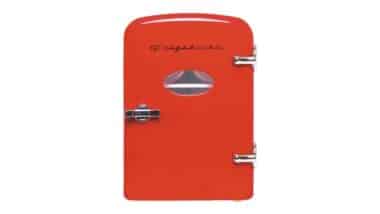
However, that decision may change pending further appeal. A hearing on the appeal is scheduled for June 9.
The dispute involves the crash of Air Canada Flight 624 from Toronto on March 29, 2015. There were reportedly five crew members and 133 passengers on board at the time.
According to the TSB report, the Airbus A320 “severed power lines, then struck the snow-covered ground about 740 feet before the runway threshold.” The plane reportedly became airborne again, striking the ground two more times before it slid along the runway and came to rest.
Reportedly, 25 passengers required hospital treatment. Three passengers filed a class action lawsuit to seek compensation for the physical and/or psychological injuries they suffered in the crash.
The plaintiffs’ lawyers sought access to the cockpit voice recorder (CVR) data, arguing the contents were central to the passengers’ class action lawsuit.
The TSB pointed to the Canadian Transportation Accident Investigation and Safety Board Act, which states that “every on-board recording is privileged.” The TSB argues that this act prohibits the communication of on-board recording “in any legal, disciplinary or other proceedings” and therefore it would not turn over the cockpit voice recorder data.
Nova Scotia Supreme Court Judge Patrick Duncan disagreed with the TSB, finding that the definition of “privilege” is limited. He ordered the TSB to turn over the recordings and transcripts.
“The necessary implication is that the TSB can, subject to statute, communicate contents that are related to the causes or the identification of safety deficiencies,” the judge wrote in his order. “In the circumstances of this case, the public interest in the administration of justice outweighs the importance attached to the statutory privilege protecting the cockpit voice recorder.”
The TSB subsequently sought a stay until the appeals hearing on June 9.
On Feb. 6, Justice Carole Beaton granted the stay, finding that the TSB could suffer irreparable harm if the stay is not granted and the TSB’s appeal is ultimately successful. The judge found that the TSB would experience a higher degree of harm if the stay is not granted than the passengers would experience if the stay is granted.
Judge Beaton pointed to an affidavit by Jean Laporte, a retired chief operating officer of the TSB, who cautioned that releasing cockpit recordings before an appeal is ruled upon could compromise future TSB investigations.
Laporte reportedly said that the TSB’s report on the plane crash provides the plaintiffs with all of the information they need. According to Judge Beaton, Laporte believed that the information contained in the TSB’s report would allow them “to reconstruct in detail both the flight and events in the cockpit, without the need for the CVR.”
Do you think it’s fair that the TSB is not required to turn over voice recordings or transcripts from the Air Canada Flight 624 crash? Tell us your thoughts in the comment section below!
The plaintiffs are represented by Raymond Wagner, QC and Joe Fiorante, QC.
The Air Canada Flight 624 Crash Class Action Lawsuit is Kathleen Carroll-Byrne, et al. v. Air Canada, et al., Case No. HFX438657, in the Supreme Court of Nova Scotia, Canada.
ATTORNEY ADVERTISING
Top Class Actions is a Proud Member of the American Bar Association
LEGAL INFORMATION IS NOT LEGAL ADVICE
Top Class Actions Legal Statement
©2008 – 2026 Top Class Actions® LLC
Various Trademarks held by their respective owners
This website is not intended for viewing or usage by European Union citizens.















One thought on TSB Does Not Have to Hand Over Voice Recordings Nova Scotia Court Rules
Air data recorders are there for experienced use. The people who go over this material are experts in their field and do so most diligently. Because the information needs to be viewed in context with the various parameters, it would not be treated in the desired context and could be construed in such a distorted manner by those that are not experts in the field of aviation that little good would come of it. All that should have to be released are the results of the Safety board hearings. Lawyers are just trying to look for avenues to exploit and place blame where none may exist. Just a fishing trip with biased reasoning. No they should no be released.